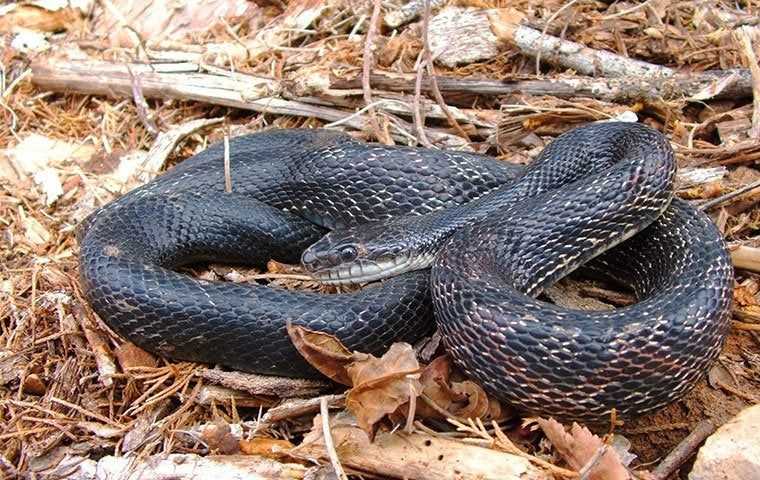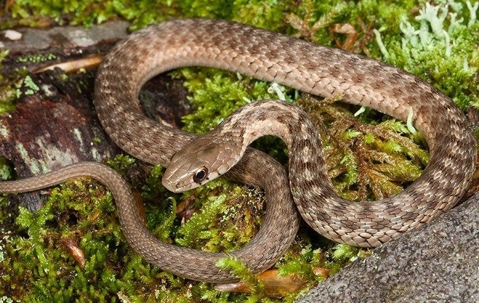
While snakes often instill fear in people, these animals serve a vital role in the environment by eliminating disease-carrying pests that may invade homes. However, unexpected encounters can still put people and pets in harm’s way. If you need immediate snake removal in your Houston, Dallas/Fort Worth, TX and surrounding areas home, contact 911 Wildlife right away.
Texas is home to more than a hundred different species and subspecies of snakes, and many are common in urban areas. Although most types of snakes aren’t venomous, a few are, and the ones that aren’t can still bite if frightened and cornered. It is important to understand that snakebites occur as part of the snake’s defense mechanism, which is why it is essential to be aware of why and how they enter homes.
Generally, snakes eat insects, mice, and rats, making them beneficial to humans. However, this also means that homes suffering from rodent or insect intrusions become attractive sources of food for snakes. If your home has a rodent or insect problem, it’s best to take care of it first to avoid attracting snakes to your property.
Snakes also enter homes to find shelter. During the colder months, snakes may seek refuge in a barn, shed, or garage, or underneath a pier and beam foundation. Areas full of clutter such as piles of wood, leaves, mulch, and other debris offer snakes a warm and comfortable place to hide. Additionally, any small hole into your home or building can easily be taken advantage of by snakes. Sealing potential entryways and clearing debris help prevent snakes from considering your home as shelter.
Frequently Asked Questions
What are snakes?
Snakes are reptiles and, therefore, cold-blooded animals. Snakes and other reptiles regulate their body temperature externally. To become warmer, snakes have to move out into the warm sunlight; to get cooler, they move into shaded areas. When the weather is very cool, they brumate or become inactive because their body temperature isn’t high enough to digest food. Snakes can be dangerous and it's important to know what to do about dangerous wildlife on your Houston area property.
Scales cover the elongated cylindrical body of a snake to help them hold onto moisture and protect their skin as they slither across the ground. Snakes slither instead of walk because they lack legs. A snake’s color pattern, size, and hunting behaviors are determined by their specie. Though snakes are not usually a welcome sight in our yards, they are important predators, helping reduce the number of rodents and other pests.
Are snakes dangerous?
In most cases, the only snakes that pose a threat to people and our pets are those that possess venom. Unfortunately, their venom is strong enough to trigger severe and sometimes life-threatening reactions. However, most of the snakes we come across are harmless to people. If a bite was to occur; there might be some pain and swelling at the bite site but no other serious side-effects.
It is important to note that venomous snake species live throughout Texas. If snakes are a problem on your Houston area property, it is best to reach out to 911 Wildlife so the species can be accurately identified and safely removed!
Why do I have a snake problem?
The warm weather found throughout Texas provides snakes with the warm temperatures they need to survive and thrive. They have the potential to become a problem on any property that offers them places to hide and plenty of prey for them to hunt. Typically, properties near wooded areas, meadows, fields, streams, ponds, shrubbery, and large garden areas are most susceptible to snake infiltrations.
Where will I find snakes?
Most species of snakes live on land, but some species are aquatic. Snakes usually hide in dark, secluded areas that keep them hidden. People are often startled by snakes hiding in leaf piles, logs, woodpiles, bushes, and next to rock walls or foundations. When sunning themselves, snakes stretch out on pavement, sidewalks, and driveways.
Open garage or shed doors allow snakes to move inside and hide within clutter or boxes. If snakes live in your yard and while searching for prey or a hiding spot they come across an opening in your home’s exterior (usually in the foundation), they will move inside. Basements, crawl spaces, and areas above ceilings are common indoor hideouts for snakes.
How do I get rid of snakes?
Snakes live in large numbers throughout Texas. When they decide to take up residence on our properties, contacting a professional to remove them is always suggested. To get rid of snakes from your property, partner with the snake control experts at 911 Wildlife. Our professionals will come to your property to do an inspection and perform customized services to remove snakes from your property, as well as provide exclusion work.
If snakes have become a problem in or around your home, call 911 Wildlife today for wildlife control in Houston!
What do I do if there's a snake on my property?
Snakes often enter homes to find food and will move on once they’ve caught their prey. If you happen to find a snake in your house, and it looks like it’s only hunting for food, leave a window or the door open so it can safely exit the premises. If the snake has trouble leaving or intends to stay in your home, call a professional. Unless you are trained to identify and handle snakes, it’s best to leave the job to a wildlife control expert.
911 Wildlife provides humane snake removal in Houston, Dallas, and surrounding areas. If you need to have a snake or any kind of wild animal removed from your home, building, or yard, call us today for a professional inspection by one of our wildlife specialists.
How can I prevent snakes in the future?
While you should always allow a professional to handle snake issues, there are things you can do around your property to make it less attractive to these legless intruders:
- Maintain gardens and keep the grass cut short.
- Don’t allow shrubs and bushes to become overgrown on your property.
- Remove leaf piles and brush piles from your yard.
- Keep a barrier between wooded areas and your yard.
- Cut back tall grass and weeds from your foundation.
- Inspect the foundation of your home and seal any holes or gaps discovered.
- Place covers over vents leading into your home.
- Seal spaces around air conditioners.
- Repair leaky hoses or air conditioners that could provide a source of water for snakes.
- Keep outbuildings organized and free of clutter and keep their doors closed whenever possible.
Learn about our residential animal removal.

